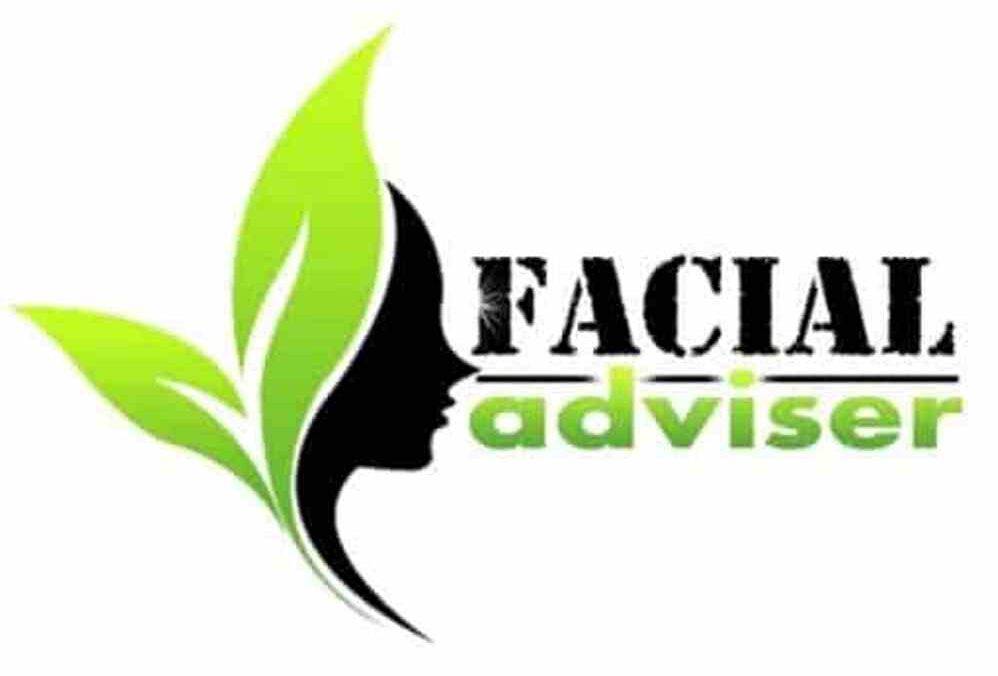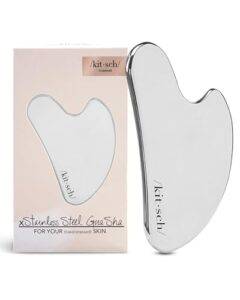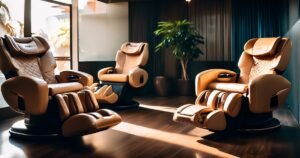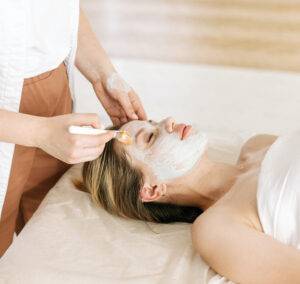This Site Is A Participant In The Amazon Services LLC Associates Program. We may earn money or products from Amazon or the companies mentioned in this post.
Estheticians may pop pimples, but it is not recommended as it can lead to scarring and infection. The temptation to pop pimples can be hard to resist, but it is a bad idea if you want to achieve healthy, clear skin.
Estheticians are often asked if they pop pimples, and the answer is not a simple yes or no. While it is not recommended to pop pimples, in some circumstances, it may be necessary to do so to prevent scarring or further infection.
However, if not done properly, it can lead to more harm than good. In this article, we will explore the reasons why estheticians may pop pimples, the potential risks, and alternatives to popping pimples. We will also provide tips for preventing pimples and maintaining healthy skin.

Credit: theeverygirl.com
Understanding Pimples And Acne
Are you tired of battling with pesky pimples? You’re not alone! Pimples and acne are some of the most common skin concerns that people face. Let’s dive deeper into understanding the ins and outs of pimples and acne.
What Are Pimples And Acne?
Pimples are small, red, inflamed bumps that commonly appear on the face. Acne, on the other hand, is a chronic skin condition that results in pimples, blackheads, whiteheads, and even cysts.
Different Types Of Pimples
Not all pimples are created equal. Here are the different types of pimples you may encounter:
- Whiteheads: Small bumps that are closed at the surface of the skin.
- Blackheads: Small bumps that are open at the surface of the skin.
- Papules: Red, inflamed bumps that are often painful to the touch.
- Pustules: Similar to papules but have pus at the tip.
- Cysts: Large, painful bumps that are filled with pus and can cause scarring.
Causes Of Pimples And Acne
The causes of pimples and acne can vary, but here are the most common factors:
- Hormonal changes: When hormone levels shift, it can trigger oil production, leading to breakouts.
- Genetics: Unfortunately, acne can be hereditary.
- Diet: Consuming a diet high in sugar and processed foods can lead to breakouts.
- Stress: Stress can trigger hormonal changes that can contribute to breakouts.
- Skincare products: Using the wrong skincare products or not removing your makeup properly can lead to clogged pores and breakouts.
Understanding the different types of pimples, the causes of acne, and how to manage them can help you achieve clear, beautiful skin. So next time you have a pesky pimple, you’ll know exactly how to tackle it!
The Role Of Estheticians In Treating Acne And Pimples
As someone who struggles with acne, it’s essential to find the right treatment to keep your skin clear and healthy. When it comes to treating pimples and acne, estheticians can provide various services that can make a significant difference. They are skincare professionals who specialize in treating various skin conditions, including acne.
In this post, we’ll discuss the role of estheticians in treating acne and pimples, the services they offer, the benefits of seeking treatment from them, and whether or not they can pop pimples. Let’s dive in!
Services Offered By Estheticians
Estheticians offer various services to help improve the condition of your skin. Some of the services they offer include:
- Extractions: Estheticians use specialized tools to extract blackheads and whiteheads from your skin. Extractions are suitable for people who have acne-prone and oily skin. This procedure should only be carried out by a professional esthetician to avoid causing skin damage.
- Chemical peels: Chemical peels involve applying a chemical solution to your skin to exfoliate dead skin cells. Estheticians use various chemicals, such as glycolic acid and salicylic acid, to penetrate the skin and unclog pores. This procedure can also help reduce the appearance of acne scarring and hyperpigmentation.
- Facials: Estheticians offer various types of facials to help improve the condition of your skin. The facials may include steaming, exfoliation, mask, extractions, and moisturizing. Facials help to keep the skin healthy, remove excess oil, and unclog pores.
- Led light therapy: This treatment involves using a specialized device that emits specific wavelengths of light to target acne-causing bacteria and reduce inflammation. Led light therapy helps to improve the appearance of acne-prone skin, reduce the appearance of fine lines, and improve skin texture.
Can Estheticians Pop Pimples?
Estheticians can extract blackheads and whiteheads from your skin, but they should avoid popping pimples. Pimples have a sac filled with bacteria, oil, and dead skin cells that can lead to further infection and inflammation if popped. Therefore, it’s advisable to leave pimples alone and let them heal naturally.
Popping pimples can lead to scarring and discoloration.
Benefits Of Seeking Treatment From Estheticians
Seeking treatment from an esthetician can offer several benefits to help you manage acne and keep your skin healthy, including:
- Personalized treatment: Estheticians offer personalized skincare treatments tailored to your skin’s needs. They can assess your skin and recommend the most suitable treatments, such as chemical peels or led light therapy.
- Improved skin texture: Regular facials and treatments from an esthetician can improve the texture and appearance of your skin.
- Reduced acne scarring: Estheticians can help reduce the appearance of acne scarring by using specialized treatments.
- Professional extractions: Estheticians have the skills and expertise to carry out extractions safely and effectively, reducing the risk of skin damage or infection.
Estheticians can play a crucial role in treating acne and pimples. They offer various services that can help improve the condition of your skin. While they can extract blackheads and whiteheads, they should avoid popping pimples to avoid further inflammation and damage to the skin.
Seeking treatment from an esthetician can provide several benefits and help you keep your skin healthy and glowing.
Pros And Cons Of Popping Pimples
Do Estheticians Pop Pimples? Pros And Cons Of Popping Pimples
Pimples are a common skin issue, and many people are tempted to pop them. However, is it safe to pop pimples? Do estheticians pop pimples? In this section, we’ll explore the pros and cons of popping pimples and investigate the risks associated with this skincare practice.
Pros Of Popping Pimples
While popping pimples is generally discouraged by skincare professionals, there may be some benefits to doing so under certain circumstances. Some potential benefits of popping pimples include:
- Reduces inflammation: When you pop a pimple, you release pus and other debris from your pores, which can help reduce inflammation and speed up the healing process.
- Minimizes scarring: If you have a severe acne breakout, popping pimples can prevent scarring by releasing the contents of your pores before your body has a chance to create scar tissue.
- Immediate relief: If you’re feeling pain from a pimple, popping it can provide immediate relief.
Cons Of Popping Pimples
There are several drawbacks to popping pimples, and skincare professionals generally advise against doing so. Some negative outcomes to consider include:
- Increased risk of infection: Popping a pimple can introduce bacteria into your skin, increasing your risk of infection. As a result, you could end up with more pimples or other skin issues, including cysts and even scarring.
- Further irritation: Popping a pimple can cause further skin irritation, which can lead to more breakouts and potentially worsen your acne.
- Skin damage: Going too deep or using the wrong tools to pop a pimple can cause permanent skin damage.
- Delayed healing: Popping pimples can ultimately delay the healing process, and in some cases, it can even lead to more pimples forming.
The Risks Associated With Popping Pimples At Home
Suppose you’re considering popping a pimple. In that case, some additional risks you should be aware of include:
- Damage to healthy skin: When popping a pimple, it’s easy to damage the surrounding healthy skin or even push bacteria deeper into your skin.
- No sterile environment: Unless done in a sterile environment, popping pimples at home is never sterile, increasing your risk of infection and other skin issues.
- Potential scarring: When popping a pimple at home, you increase your risks of scarring. The risk of scarring is higher when you use your nails or fingers to pop pimples.
Overall, popping pimples can provide immediate relief for acne sufferers, but there are many risks and drawbacks to consider. If you’re not confident about doing it yourself, we recommend avoiding this practice and speaking with a skincare professional.
How Estheticians Pop Pimples
Do Estheticians Pop Pimples?
Pimples – a nightmare for most people. It’s hard not to feel the temptation to pop them, but is it okay? Do estheticians pop pimples? The answer is yes, but in a professional way. We’ll be discussing how estheticians pop pimples.
Prepping The Skin
Before starting the extraction process, estheticians prepare the skin. One of the proper methods is using warm compresses, which helps to open up the pores. They also cleanse the skin, and use a toner to avoid any bacteria from being pushed back.
Before proceeding, they ensure that the area around the blemish is pristine and dry.
The Extraction Process
This is the primary step, where the pimple is popped. The esthetician uses a sterilized tool to apply pressure, which can include using cotton swabs, lancets, or special extraction tools. By using caution and precision, they ensure that no further damage is done to the skin.
Here’s how they do it:
- They identify the pimples that are best treated with extraction.
- They use a good magnifying lamp to get a clear view of the pimple’s sizing, location, and depth.
- They put on a pair of gloves to prevent contact with bacteria or skin oil.
- The pimple is gently pressed in a controlled manner using the sterile tool.
Post-Extraction Care
Once the extraction process is complete, the area is gently wiped with toner, and appropriate serum is used to calm the skin down. After that, a hydrating and soothing mask is applied to keep the skin moisturized and prevent any further breakouts.
To summarize:
- Aftercare is an essential part of the extraction process.
- Estheticians ensure that the skin is kept clean and bacteria-free.
- They have the proper tools and use them with precision.
- They follow up with post-extraction care to prevent further breakouts and skin irritation.
Estheticians do pop pimples professionally, but only when necessary and following proper protocols. Hopefully, this article has helped you understand how estheticians pop pimples!
Alternatives To Popping Pimples
Do Estheticians Pop Pimples?
As much as everyone is tempted to pop a pimple on their face, it is not advisable, especially if you’re not a professional. Many people believe that estheticians pop pimples during a facial. However, it’s a myth.
Non-Invasive Acne Treatments
Estheticians perform various non-invasive procedures that help reduce acne scars and blemishes. Here are some of the most popular treatments:
- Light therapy: A non-invasive treatment that uses red and blue light to kill bacteria and reduce inflammation.
- Chemical peels: A chemical solution is applied to the skin to remove the top layer, revealing smoother, more even-toned skin.
- Microdermabrasion: A minimally invasive procedure that removes the outer layer of skin to improve its texture and appearance.
- Dermaplaning: A treatment that removes the top layer of dead skin and peach fuzz hair, leaving skin smoother and brighter.
Topical Acne Treatments
Estheticians recommend using topical acne treatments to manage breakouts. Here are some of the most common:
- Salicylic acid: This treatment exfoliates the skin, unclogs pores, and reduces inflammation.
- Benzoyl peroxide: An antibacterial medication that helps to kill bacteria and reduce inflammation.
- Retinoids: A vitamin a derivative that helps to unclog pores, reduce inflammation, and promote skin cell turnover.
Lifestyle Changes To Prevent Pimples And Acne
Aside from treatments, making some changes to your lifestyle can go a long way in preventing pimples and acne. Here are some tips to consider:
- Drink plenty of water to keep your skin hydrated and healthy.
- Avoid touching your face or picking at pimples to prevent the spread of bacteria.
- Remove makeup before going to bed to prevent clogged pores and breakouts.
- Eat a healthy diet rich in fruits and vegetables to provide your skin with essential vitamins and nutrients.
- Exercise regularly to increase blood flow and promote healthy skin.
While it’s tempting to pop a pimple, it’s best to leave it to the professionals. Estheticians perform non-invasive procedures, recommend topical acne treatments, and suggest lifestyle changes to prevent pimples and acne. Remember to take care of your skin, and you’ll be rewarded with healthy, glowing skin.
Frequently Asked Questions Of Do Estheticians Pop Pimples?
Do Estheticians Pop Pimples During Facials?
Estheticians should not pop pimples during a facial since it can cause infection, scarring, and even spread bacteria. They may use gentle extraction methods for blackheads and whiteheads that are ready to be removed.
Can Popping Pimples Cause Skin Damage?
Yes, popping pimples yourself or by an esthetician can cause damage to your skin, such as scarring and infection. It can also spread bacteria and create more pimples.
What Are The Common Causes Of Pimples?
Pimples can be caused by a variety of factors including hormone changes, stress, genetics, and bacterial infections. They can also be exacerbated by certain medications and skincare products.
How Can I Prevent Pimples?
Preventing pimples involves maintaining a consistent skincare routine that includes cleansing, exfoliating, and moisturizing. It is also important to avoid touching your face, using non-comedogenic products, and practicing stress-reducing techniques.
Are There Professional Treatments For Pimples?
Yes, professional treatments like chemical peels, microdermabrasion, and laser therapy can help reduce the appearance of pimples and prevent future breakouts. It is recommended to consult with a licensed esthetician or dermatologist for personalized treatment plans.
Conclusion
As a concluding remark, it is safe to say that estheticians have a range of options for treating acne, but popping pimples usually isn’t one of them. Although many people view acne extraction as a quick fix, this technique can be more damaging than beneficial.
Estheticians are trained professionals who have a deep understanding of skin biology and can recommend the best treatment options to unclog pores and prevent acne from forming. Engaging in a comprehensive skincare routine that incorporates exfoliation, a balanced diet, and a healthy lifestyle can also contribute to clearer skin.
Ultimately, it’s vital to keep in mind that not all quick fixes are long-lasting. Instead of resorting to dangerous and unsanitary methods, it’s essential to seek the advice of a licensed esthetician to ensure that your skin is healthy, clear, and glowing.
With their expertise and guidance, you can achieve the beautiful complexion you’ve always desired, permanently.

Amelia Varley is a professional beauty blogger and freelance writer with a passion for all things skincare, makeup, and holistic wellness. With years of experience in the beauty industry, Amelia shares expert tips, product reviews, and innovative beauty routines with her readers. Her writing is driven by a desire to empower people to look and feel their best through mindful beauty practices. When she’s not writing, Amelia enjoys experimenting with the latest beauty trends and exploring the connection between self-care and confidence.




